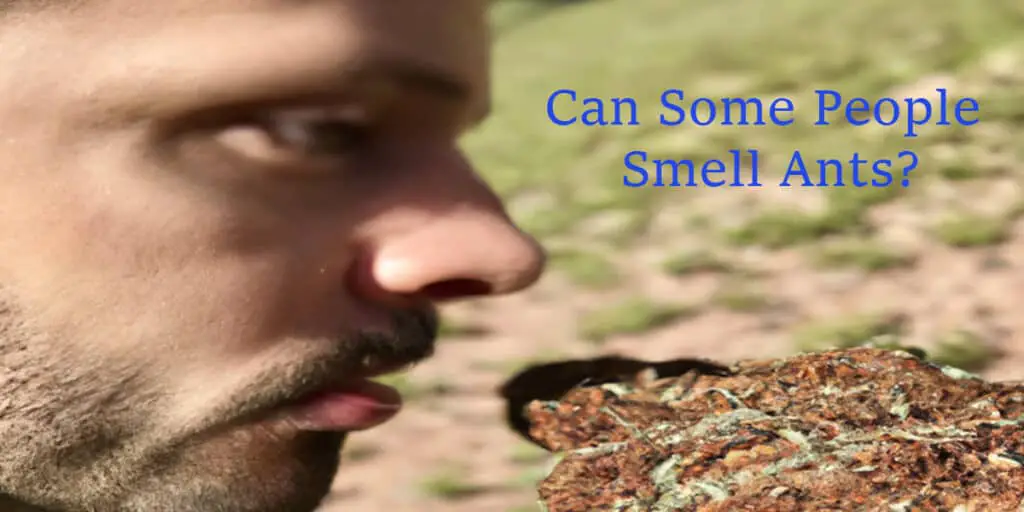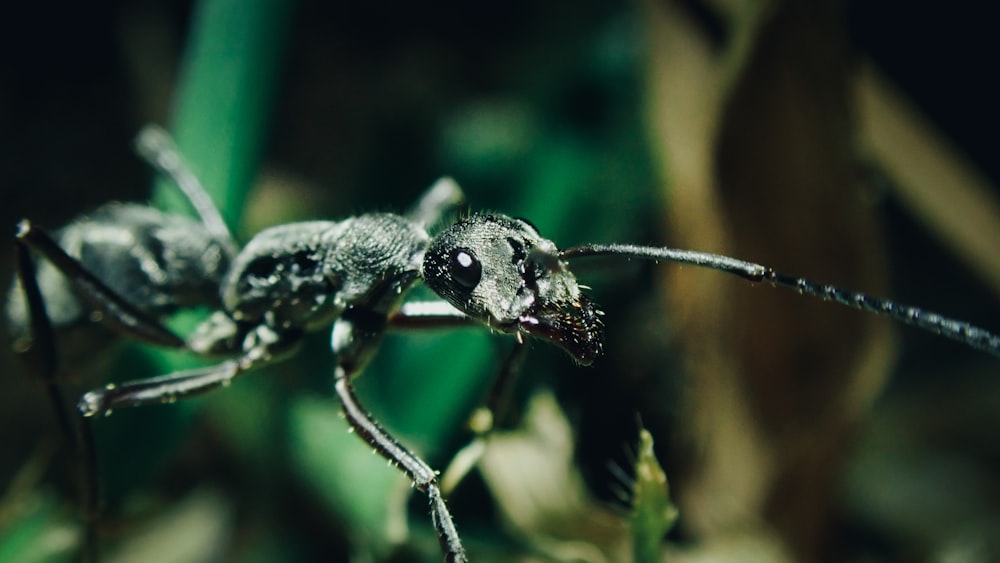Have you ever smelled an ant, dead or otherwise? Has anyone thought you were crazy for saying that you could smell them? This trait is shared by the rare few, making everyone else wonder what these dang ants smell like. Let’s dive right in to learn more about this weird phenomenon.
A majority of people in the world cannot smell ants; however, a select few can smell ants. This is a genetic difference that distinguishes people around the globe into two groups; those who can smell ants and those who can not smell ants.
Ants are perhaps one of the most exciting (we think so) but smelly animals living right under our noses.
Most people have come across ants, so why doesn’t everyone know that dead ants smell?
This smell is incredibly important.
Researchers who study these insects closely often use the smell of dead ants to narrow down the ant species.
Why Can Some People Smell Dead Ants?
Ants produce odors when they die, even of natural causes. Some people smell dead ants because they are more sensitive to these scents. These people are genetically predisposed to smell these ants, and researchers believe this comes from people whose ancestors survived in areas with many ants.
It’s not like people who can smell dead ants go around sniffing every ant hill to catch a dead ants’ smell.
Genetically, they are more aware of the scent released when ants die.
These people have the not-so-much pleasure of getting hit by these pungent smells at random times and places.
Sounds like one of the worst superpowers to have.
While some people do not pay attention to their surroundings, many with enhanced olfactory and gustatory systems cannot ignore these strong smells.
Do Ants Have An Odor?
There are more than 13000 ant species, many of that produce a particular ant smell when in danger. Not all species of ants are smelly enough for the human nose to smell. Of those that are, the scent can be mild, and some are only noticeable after getting squashed.
Inside the little body of ants, they have ten glands, which produce different scents, smells, or chemicals.
When you squash an ant, it instinctively releases an alarm chemical that alerts all other ants around that there is danger in that area.
This also makes ants distasteful to other insects.
Dead ants are also detected through the smell, allowing other ants to carry its corpse to a place with other dead insect bodies.
Some ant deaths can be sensed from a distance, if:
- A lot of ants have died
- This particular species has a strong scent.
Difference Between Oleic Acid and Formic Acid
The difference between oleic acid and formic acid is that formic acid is sprayed by ants during aggression, while oleic acid is released once the ants are dead. Many times ants who have recently died in battle will smell of both chemicals.
This is a critical distinction that you have to make before reading the rest of this article.
While some ants spray Formic Acid in battle (like carpenter ants), all ants release oleic acid when they die.
Oleic acid indicates to the rest of the colony that their friends have died in the area.
For example, this will be sprayed when you kill a queen ant.
Formic acid indicates aggression, and ants will come to help their friends.
Remember, ants talk by pheromones, so the smell of Oleic acid quickly drives ants into survival mode.
Types of Odors Released By Ants
Ants are known to emit four noticeable odors.
The first is citrussy- a unique smell, almost like oranges!
This smell is released by Citronella Ants (also known as greater yellow ants (Lasius Interjectus) and lesser yellow ants (Lasius claviger)).
The citronella ants smell is well known to be a distinctive citrusy scent.
The trap-jaw ants release a chocolate-like smell.
Trap jaw ants release an alarm pheromone in a gland in their head to let other ants know about danger in that area.
Imagine if your friends sprayed a chocolate-like smell anytime, there was danger in an area!
Some ants, like the wood ants (Formica) and the carpenter ants (Camponotus), have a distinct smell from their primary defense mechanism.
Carpenter ants spray formic acid on their predator.
Compared to the scents mentioned above, this smells kind of chemically.
Since some people can not smell formic acid, it is considered that the ability to smell it is genetic.
Green ants, like carpenter ants, produce formic acid when in danger.
However, they will eventually produce oleic acid after they die, even if they die of natural causes.
So green ants smell slightly like vinegar when they die as well.
An assistant professor, Clint Penick, researched the fourth smell by the odorous house ant smell and whether it smelled like coconut or blue cheese.
Test results in the lab concluded that the scent was blue cheese.
Penick also had some people randomly smell it and answered that it smelled like blue cheese.
Can Ants Make Your House Smell?
Ants produce an unpleasant odor whenever ants die, so your house will smell if you squash too many ants. You need to be careful when getting rid of an ant infestation, and if it’s inside or near your home, ants dying in huge numbers will make your house smell.
Along with the odor they produce when they die, the killing of ants can also make your house smell.
Rather than using chemicals and sprays that will stink up the house, you can use natural ways to keep ants away.
So you can use natural citrusy fruit peels and juice around your house to keep it smelling pleasant and the ants away.
Citrusy fruits work well as ants detest them, so they avoid them.
What Does Formic Acid Smell Like
The smell of formic acid is similar to that of vinegar. People who can smell ants describe the smell of recently aggressive carpenter or wood ants as that of vinegar. This is understandable as these two species of ants spray formic acid when in danger.
Dead Ant Smell
When ants die of natural causes, it releases oleic acid. Other ants detect a dead ant’s smell and carry it off to the dead ant pile, an indicator of death and danger for other ants.
A dead ant is considered a threat to the colony and its members.
This doesn’t matter if it died of natural causes or was killed by a predator.
A dead ant is a risk to the security of the colony.
It needs to be dealt with quickly.
This is why, rather than mourn it…
Ants carry the corpse to the midden, a pile of dead ants’ bodies.
(Spooky)
Some people who can not specifically smell formic acid and oleic can still smell ants when they die.
Realize that not all species have the same scents.
While some may not be able to smell oleic acid or formic acid, they still could sense the smells of the odorous house ant (for example).
Ability to smell Ants: Blessing or curse?
People who can not smell ants are not missing out on anything.
The only advantage of being able to smell dead ants is to let everyone know around you that ants have recently died.
Real fun.
It’s more of a curse than a blessing.
In either case, people who can and can not smell dead ants are not too different.
Who wants to smell a dead insect anyways?
Whatever the case, do not go around trying to smell ants, and stop putting ants close to your nose.
Some of them can cause you harm.
What Percentage Of The Population Can Smell Ants?
According to a poll that Anna Brandberg ran, with nearly 1000 votes, around 26.6% of the population can smell ants. This means that about 73.4% of the population can not smell ants.
So, if you’re one of the ones who can smell ants, consider yourself lucky.
Link to the poll below:
Ok yeah, I'm still having a hard time getting my brain around this. Which means it's poll time again…
👉 How many of you can smell ants?
(And those who can — do they smell a lot? Like, do you notice them when walking past them on the street?? How on earth do you cope??)
— Anna Brandberg 💙 (same on bluesky) (@annabrandberg) December 21, 2021








